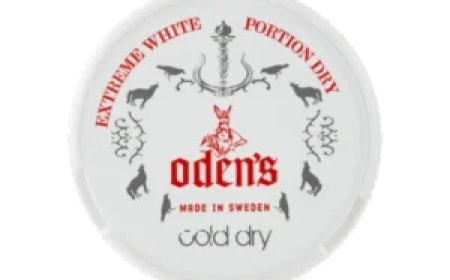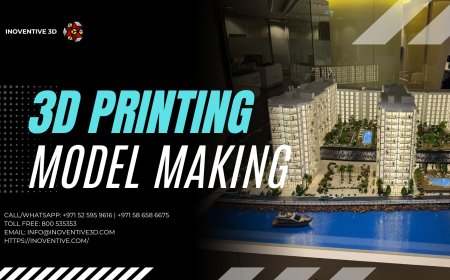Hiring Compliance Minds: More Than Policy Knowledge

A New Era of Compliance Hiring
As global regulations evolve and businesses grow more complex, the landscape of compliance hiring has shifted. Today, hiring a compliance professional isnt just about finding someone who can recite laws or draft policies. Its about identifying individuals who possess ethical judgment, critical thinking, and the ability to adapt to dynamic regulatory environments.
In this article, well explore why modern compliance roles require more than technical expertise. Well also guide hiring managers and HR teams on what to look for when building a resilient and forward-thinking compliance department. If you're involved in compliance hiring or looking to break into the field, check over here to uncover insights that go beyond the basics.
The Traditional Approach Why Its No Longer Enough
The Limits of Policy Knowledge in Modern Compliance
Historically, compliance hiring emphasized technical knowledge. Hiring managers would seek professionals who could interpret regulatory frameworks, draft internal policies, and ensure regulatory filings were up to date. While this foundational knowledge remains critical, it no longer defines the entirety of the role.
Today's compliance challenges include navigating cross-border laws, identifying ethical gray areas, and managing digital risks. Pure policy expertise often falls short in situations where human behavior, corporate culture, and technology intersect. For instance, understanding the GDPR or the FCPA in theory doesn't automatically equip someone to handle whistleblower reports or emerging risks from AI systems.
To find out more, lets explore what makes a compliance professional successful in this evolving landscape.
Ethics and Integrity The Core of Compliance Culture
Hiring for Character, Not Just Credentials
Ethical judgment is central to compliance success. Even the most detailed compliance manual can't predict every situation an employee might encounter. This is why hiring individuals with strong moral compasses is essential.
Candidates should demonstrate integrity not just in interviews but in their professional track record. Behavioral interviews and situational assessments are effective ways to evaluate a candidates ethical thinking. Ask about real-life scenarios theyve handled, such as reporting misconduct, resolving conflicts of interest, or pushing back on business decisions that conflicted with compliance goals.
More than ever, businesses must integrate compliance with corporate values. When your compliance team acts with integrity, they set the tone for the entire organization. So, next time you're screening candidates, remember: policies can be taughtintegrity cant.
Critical Thinking and Problem-Solving Skills
Navigating the Gray Areas with Sound Judgment
One of the most undervalued traits in compliance hiring is critical thinking. Regulations often leave room for interpretation, and real-world situations rarely fit neatly into black-and-white categories.
A skilled compliance officer can assess ambiguous situations and arrive at well-reasoned decisions that align with both the law and the companys risk appetite. For example, when reviewing marketing campaigns or third-party contracts, they must identify subtle risks that others might overlook.
Look for candidates who can synthesize information from multiple sources, question assumptions, and develop creative solutions. These skills go a long way in helping organizations proactively address potential risks rather than reactively managing crises.
If you're interested in building a team that thinks ahead, not just checks boxes, go right here to learn how to assess analytical strengths during interviews.
Communication Skills Bridging Legal and Operational Worlds
Turning Complex Regulations into Clear Guidance
Compliance professionals must be excellent communicators. Its not enough to understand the lawthey must also translate that knowledge into language business teams can understand and follow.
This means your ideal hire should be able to write clear policies, deliver engaging training, and offer guidance without overwhelming colleagues with legal jargon. The ability to communicate across functionslegal, operations, finance, and human resourcesis essential.
Consider asking candidates to demonstrate their communication style. Have them walk through how they would train a non-legal audience or rewrite a complex regulation into a company-wide memo. Their ability to connect and influence is just as valuable as their technical skills.
Adaptability in a Rapidly Changing World
The Compliance Officer as a Strategic Partner
Compliance is no longer a static function. With constant regulatory updates, evolving technologies, and shifting stakeholder expectations, adaptability is a non-negotiable trait.
Your compliance hires should be curious, proactive learners. They should follow industry developments, engage in professional development, and show an eagerness to embrace change. Look for candidates whove taken on diverse roles or volunteered for projects outside of their core job descriptionit often indicates flexibility and strategic thinking.
In this way, compliance becomes more than risk mitigationit transforms into a competitive advantage. Adaptive compliance professionals help companies navigate disruption confidently and legally.
To build a future-ready team, check over here for more tips on assessing flexibility and agility in interviews.
Building a Holistic Compliance Hiring Strategy
Going Beyond the Resume
So how do you integrate all of these elements into your compliance hiring strategy?
Start by redefining your job descriptions. Instead of only listing legal knowledge or certifications, include qualities like ethical decision-making, strategic thinking, and communication abilities. Develop interview questions and assessment tools that probe for these traits.
Also, foster a hiring culture that values diversity in thought and background. The best compliance teams often include individuals with experience in law, audit, HR, operations, and even IT. A multi-disciplinary team brings different perspectives and ensures well-rounded risk management.
Most importantly, align hiring with your organizations risk profile and strategic goals. Compliance shouldn't be a siloed departmentit should be integrated into the business and viewed as a trusted advisor.
Conclusion:
Hiring compliance minds in todays world means looking beyond the legal textbooks. Its about finding professionals who can think critically, act ethically, adapt rapidly, and communicate effectively. These qualities transform compliance from a checkbox function to a true business enabler.
As you evaluate your hiring processes, consider how youre assessing the human side of compliance. In the end, its peoplenot policieswho uphold the standards that protect your business.



































